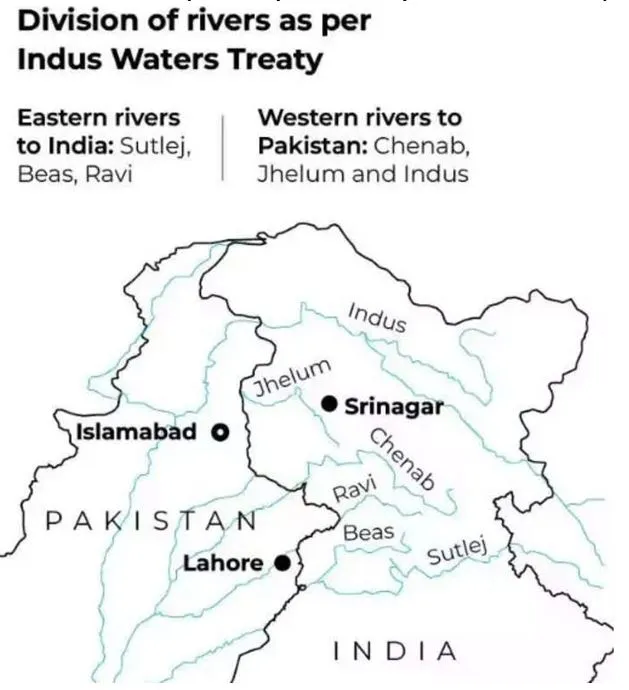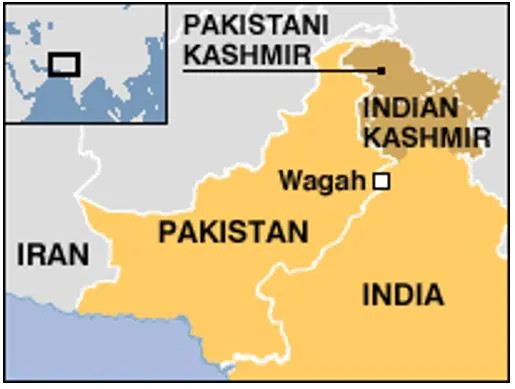

24th April 2025 (12 Topics)
Context
Following the deadly terrorist attack took place in Pahalgam, Jammu and Kashmir, the Cabinet Committee on Security (CCS), India’s apex security decision-making body, took strong diplomatic steps against Pakistan, which is alleged to support terror groups operating across the border. Among these measures, it announced that the Indus Waters Treaty would be held in abeyance until Pakistan takes credible and irreversible steps to stop cross-border terrorism.
Other Measures Taken by India
This decision on the IWT is part of a wider 5-point response plan:
- Closure of the Attari-Wagah Border Post – Halting all goods and people movement.
- Cancellation of SAARC Visa Exemptions for Pakistani Nationals – Expelling Pakistani nationals in 48 hours.
- Expulsion of Pakistani Military Advisers from India – And reciprocal withdrawal from Pakistan.
- Reduction of Indian Diplomatic Staff in Islamabad – Bringing it down from 55 to 30 officials.
What is the Indus Waters Treaty?
- The Indus Waters Treaty was signed in 1960 between India and Pakistan, with the World Bank as a mediator and guarantor.
- The treaty governs the sharing of river waters from the Indus River system, which flows through both countries.
- According to the treaty, the rivers were divided into two groups:
- The eastern rivers (Ravi, Beas, and Sutlej) were given to India for exclusive use.
- The western rivers (Indus, Jhelum, and Chenab) were allocated to Pakistan, although they originate in India.
- India is allowed limited use of the western rivers for non-consumptive needs such as hydropower, irrigation, and navigation, but must not interfere with their flow in a way that affects Pakistan’s share.
- The treaty is often cited as an example of successful water-sharing cooperation despite ongoing tensions and conflicts between the two countries.

Why is this a Big Deal?
- Linking Water and Security: Until now, India has kept water diplomacy separate from security and terrorism issues. This suspension breaks that tradition — signaling that support for terrorism will now invite consequences, including on vital resources like water.
- Impact on Pakistan’s Water Security: Pakistan is heavily dependent on the Indus River system, particularly for Agriculture (90% of irrigation), Drinking water, Hydropower. Any disruption in flows, or even the fear of reduced cooperation, could:
- Exacerbate water stress, especially in Punjab and Sindh
- Reduce crop yields and impact food security
- Create internal political pressure on Pakistan’s civilian and military leadership
- Diplomatic Pressure and Global Optics: India has traditionally been seen as a responsible actor in international treaties. By choosing abeyance over abrogation, India is still upholding the legal framework, while sending a tough political signal.
“Held in Abeyance”
 |
More Articles


